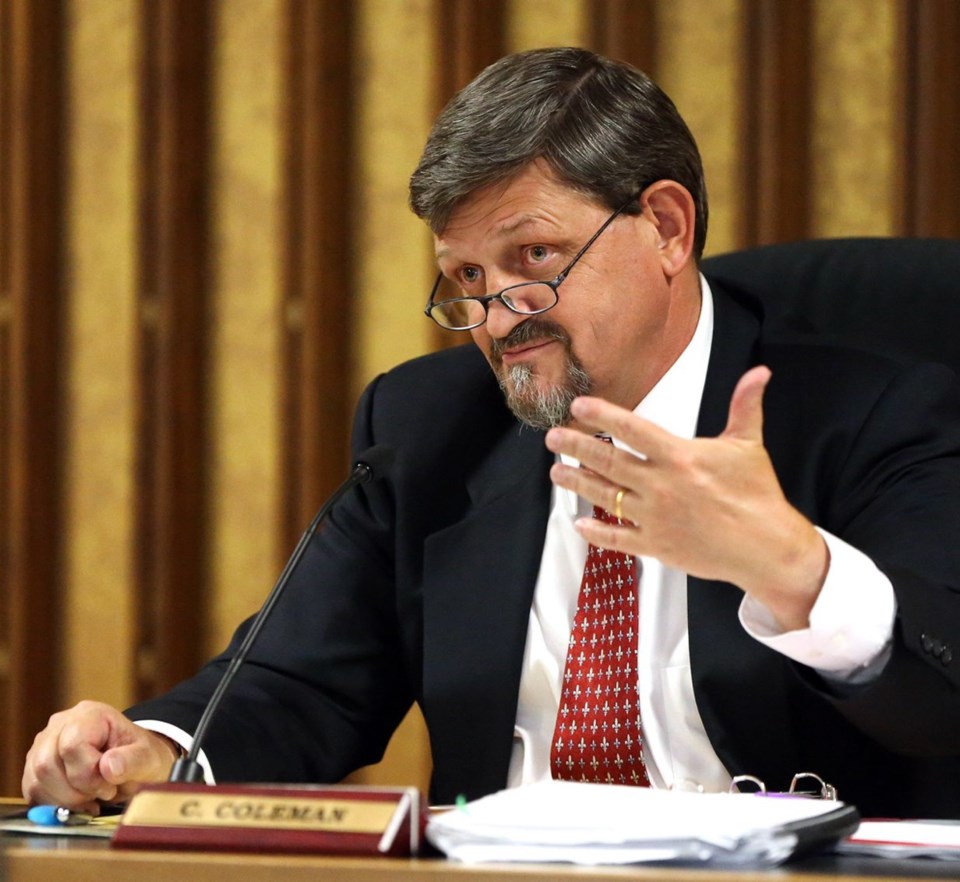Everything from marijuana shops and Airbnbs to controlling Canada geese populations will be up for debate when politicians gather at the annual Union of B.C. Municipalities Convention in Victoria next month.
In all, 177 resolutions will be up for consideration by about 1,500 local government officials when they meet in the last week of September.
There are so many resolutions up for consideration that often there isn’t the time to debate them all, says Victoria Coun. Chris Coleman.
A number of resolutions call on the provincial government to regulate short-term rentals to “level the playing field” with conventional operators such as hotel operators.
People renting out rooms, apartments or entire homes through platforms like Airbnb avoid paying a variety of taxes — from higher commercial property tax rates to special tourism levies.
A resolution from Vancouver says that the explosive growth of online rental platforms such as Airbnb is forcing local governments to take action to protect affordable housing stock for long-term residents — making tax fairness paramount.
Coleman expects resolutions regarding the short-term rentals to garner significant interest.
“There’s a whole bunch of [issues]. I suspect there will be lots of to-ing and fro-ing. But it’s always the one you don’t expect that really blows up,” he said.
There’s a call from Metchosin for the provincial government and all provincial political parties to confirm no forced amalgamation policies.
“That’s just in case there’s a change in government,” said Metchosin Mayor John Ranns.
“There should not be forced amalgamations, period ... the Community Charter says that and we just want a re-affirmation of it,” Ranns said.
Even though Victoria and Vancouver have been in the forefront in drafting regulations to deal with an explosion of marijuana retailers, other municipalities are eyeing pot as a potential source of revenue.
Duncan, Nelson and Prince George have put forward resolutions recommending the UBCM petition senior governments for local governments to receive a portion of future federal or provincial tax collected through marijuana sales and distribution.
Duncan’s resolution, endorsed by the Association of Vancouver Island and Coastal Communities, recommends forwarding the tax-sharing concept to the federal task force charged with establishing a new regulatory framework for the sale and distribution of marijuana.
An eclectic mix of resolutions have been put forward by Capital Regional District municipalities, including:
• North Saanich calling for work on the Site C Dam project to be suspended until it can be reviewed by the B.C. Utilities commission and undergo public consultations and public hearings.
• Esquimalt looking for amendments to the Community Charter to better protect the public from dangerous dogs.
• A resolution sponsored by both Esquimalt and Oak Bay to guarantee that if an elected official is absent for maternity or paternity leave, that, when they return, they come back to the terms that applied when they left, including the same appointments to committees, boards and commissions.
• Metchosin is asking that National Aboriginal Day (June 21) be designated a statutory holiday so that all Canadians can participate in the recognition and celebration of First Nations cultures.
• Victoria has forwarded a number of resolutions, including the call on the province to work with the federal government to develop and implement a national pharmacare program as an extension of Medicare; for the province to respect local government land use authority in the contaminated soils permitting process; extension of time limits for mail-in ballots; for the province to adopt protection in the B.C. Human Rights Code for transgender and gender-variant people and for the Municipal Finance Authority to create a fossil-fuel-free investment fund for local governments.
• Saanich would like to see senior governments create new tax-credit programs to help encourage home renovations that focus on energy efficiency, improved mobility and aging in place; to establish an abandoned and derelict vessel program and end-of-life vessel disposal program; and a cost-benefit review of applying new national building code provisions to residential homes under 2,000 square feet.
• Both Central Saanich and Metchosin are seeking more authority in the management and control of resident Canada geese.
• Langford is seeking support for a financial and governance review of the Island Corridor Foundation (responsible for the Esquimalt & Nanaimo Rail line).



